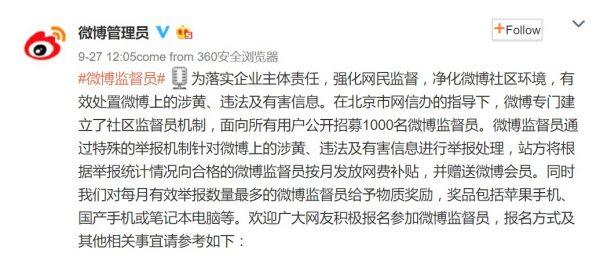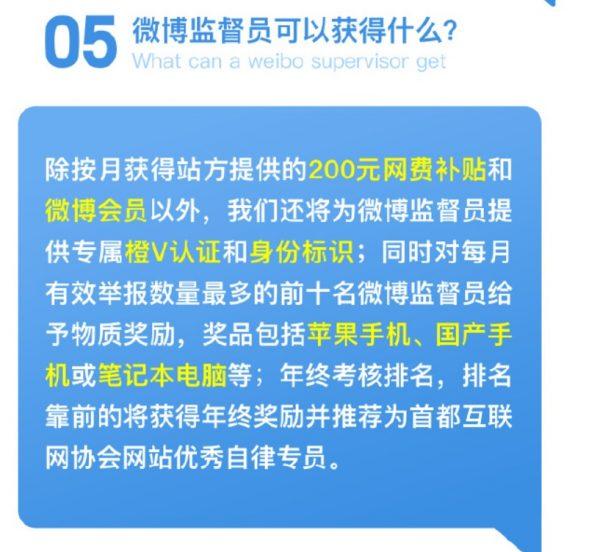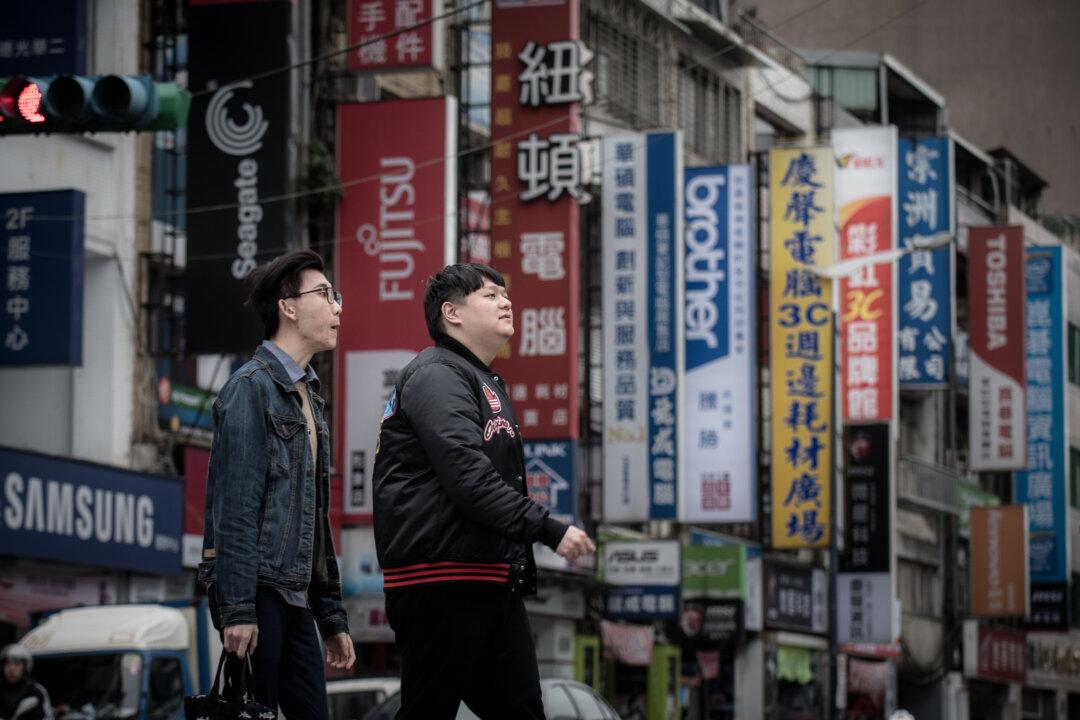Weibo, China’s equivalent of Twitter, has announced that it will hire 1,000 users to work as online censors. The censors will be rewarded monetarily for reporting “harmful” contents posted by other Weibo users, which might include their friends and family.
Weibo posted the recruitment poster on Sept. 27, saying that it will hire an initial 1,000 “Weibo censors” from among existing users. The move is said to be in accordance with a state directive issued by the Beijing arm of the Cyberspace Administration of China (CAC), the Chinese regime’s top organ responsible for imposing internet censorship.

According to the poster, Weibo will pay each censor a stipend of 200 yuan ($30.13), and will reward the top 10 performers of the month with gifts such as an Apple iPhone, a domestic brand smartphone, or a tablet.
Censors are required to report a minimum of 200 posts a month, and will specifically target pornography and “harmful information” that are deemed illegal by the Chinese regime. Weibo will also host online and in-person training sessions for censors to ensure they perform the job as intended.
Most popular social network sites around the world have employed dedicated “reviewers,” or “screeners” that work to review content flagged by users on their respective platforms. Facebook, for example, employs a large number of contractors who spend an average of just a few seconds on each post to decide if the content in question violates the site’s policies.
The latest Weibo censors, however, go a step further. These censors are selected from average users on the platform, and are given monetary rewards to report contents that they deem are outside the boundaries set by Weibo and the state. With these incentives, Weibo users who become censors might be tempted to report on friends and family members to reach the minimum monthly requirement of 200 posts.

Many Chinese netizens have ridiculed the latest announcement from Weibo, and even compared its “censors” to the infamous “Red Guards” during the Cultural Revolution of the 1960s and 1970s, who were known for inflicting political violence on anyone who did not fervently adhere to Mao Zedong’s thought.
Weibo is China’s second most popular social media platform, after Tencent’s messaging app WeChat. It is often compared to Twitter, which is not available in China due to its being blocked by the Chinese regime’s Great Firewall (GFW).
The reason for the blocking of Twitter has never been fully explained by officials. However, it is often assumed that the regime favors Weibo due to it being a Chinese company and much more pliable to the regime’s demand for censorship.



